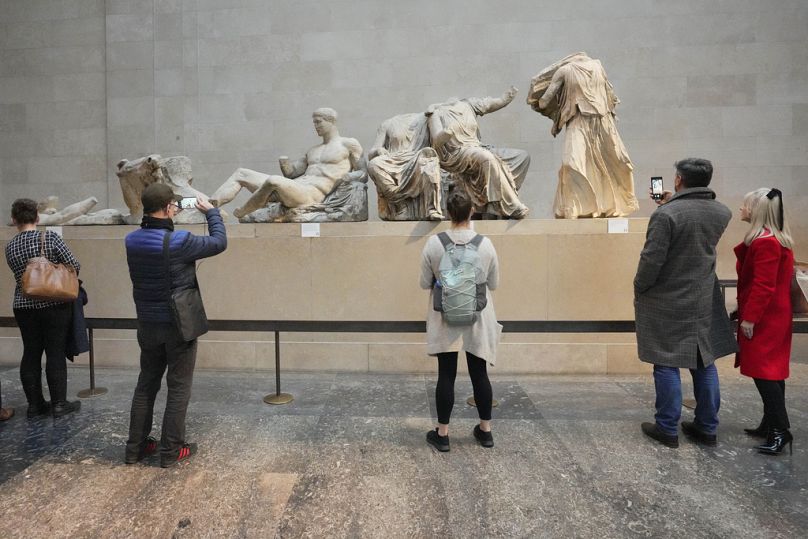The British prime minister said his Greek counterpart wanted to "grandstand and relitigate issues of the past" rather than focus on serious topics.
British Prime Minister Rishi Sunak escalated his war of words with the leader of Greece on Wednesday, accusing Prime Minister Kyriakos Mitsotakis of trying to "grandstand" over the disputed Parthenon Marbles and breaking a promise to the UK government.
 ADVERTISEMENT
ADVERTISEMENT
 ADVERTISEMENT
ADVERTISEMENT
Mitsotakis, meanwhile, said the dispute had helped draw international attention to Greece’s longstanding claim to the artefacts, part of a 2,500-year-old frieze that was taken from Athens in the early 19th century by British diplomat Lord Elgin and are on display in the British Museum.
The two European allies, both with centre-right governments, have been at loggerheads since Monday, when Sunak called off a scheduled meeting with Mitsotakis hours before it was due to start.
During the British prime minister’s weekly question time in the House of Commons on Wednesday, Sunak said "it was clear that the purpose of the meeting was not to discuss substantive issues for the future, but rather to grandstand and relitigate issues of the past."
Greece and the UK have a long-running dispute over the Parthenon Marbles. Athens wants them returned so they can be displayed alongside the rest of the Parthenon sculptures at a purpose-built museum in Athens.
British officials were annoyed that Mitsotakis appeared on British television Sunday and compared the removal of the sculptures from Athens to cutting Leonardo da Vinci’s Mona Lisa in half.
Sunak said Mitsotakis had reneged on a promise not to talk publicly about the marbles during his visit.
“Specific assurances on that topic were made to this country and then were broken,” Sunak said. “When people make commitments, they should keep them.”
The Greek government denied any such promise was made.
Speaking before Sunak’s latest comments, Mitsotakis said he thought the spat “will not affect Greek-British relations in the long term.”
“There was a positive side to the cancellation of this meeting, that it gained even more publicity … (for) the fair request of Greece for the reunification of the sculptures of the Parthenon," he said in Athens.











